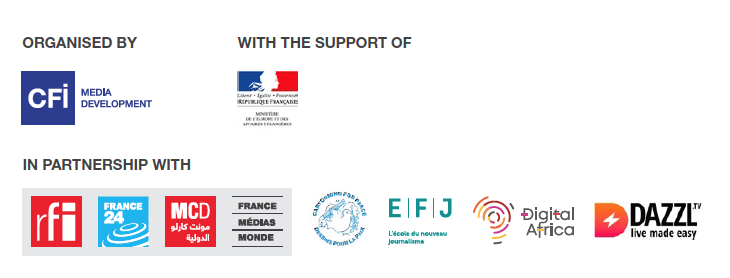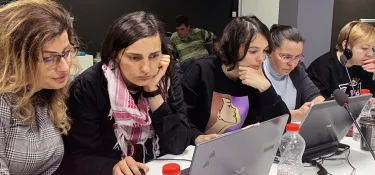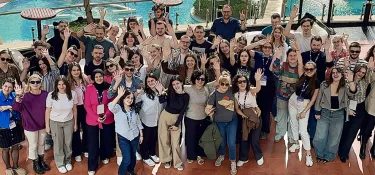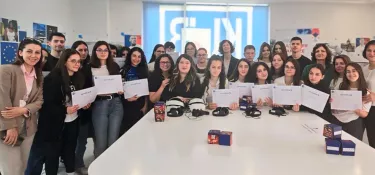
Media and Development Forum
200 media players from 30 countries gathered in Paris on 11 & 12 December 2019
Social cohesion, youth inclusion, post-conflict reconciliation, supporting democratic transitions, explaining climate change: are we asking too much of the media?
These new demands placed on the media occur in the context of major recent changes, including the increased pace of information dissemination and the development of new content production tools.
The Media and Development forum is an opportunity for CFI's media partners from Africa, Asia, Europe and the Arab world to debate, examine and discuss views on all these issues.
CFI and its partners will be gathering in Paris on 11 and 12 December 2019 for this special event with a view to sharing practices, solutions, challenges and innovations.
To share and follow this forum: #ForumMediaDev
Three major themes at the heart of this forum:
Should the media be feminist?
With gender equality now firmly established as a topical issue throughout the world, the media play a key role in changing attitudes, breaking down stereotypes and challenging gender inequalities. Yet women continue to be underrepresented in media outlets, representing for example only 19% of experts seen, heard and read in the media. Moreover, the issue of gender equality is only addressed in 9% of news stories worldwide. What are the challenges faced by the media in their commitment to promoting greater gender equality? What role can they play in raising public awareness and challenging inequality?
Can we combat fake news?
Disinformation existed long before social media, shaking the beliefs of citizens around the world. Yet online platforms have increased both the power of rumours and the capabilities of malicious actors. It's no coincidence that companies such as Facebook regularly communicate on the work they do to block and dismantle coordinated operations on its applications around the world. So, what can journalists do? How should we define a piece of fake news? How can we identify rumours and devise an appropriate and persuasive response as quickly as possible while also restoring public trust in the media?
Is it still possible and desirable to measure the impact of the media?
Although the era of mass media with their huge audiences is now partly over, this does not mean that journalists do not still have a role to play. But how should we define a media outlet's mission today? Should the criteria for success be reviewed? Should new ways of reflecting the demand for transparency and of measuring impact be created? In this respect, it is worth examining the role of certain media outlets or NGOs in the monitoring of parliamentary activity, the fight against gender inequality or environmental issues. This question is of particular interest to major development aid donors involved in supporting the media. They will only continue to do so if media outlets (and, by extension, projects in support of media organisations) can demonstrate that they are radically influencing behavioural change. Easier said than done?



